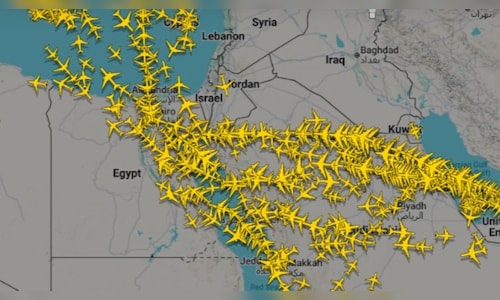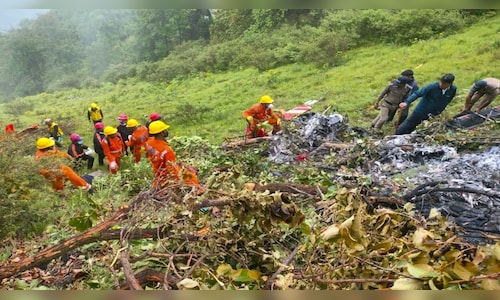On Saturday (June 14), IndiGo issued a travel advisory noting that rerouting was essential due to ongoing restrictions in the Middle Eastern/West Asia airspace. The airline stated on X, “Airspace over Iran and surrounding areas remains unavailable. Certain flight paths may require adjustments, which could lead to extended travel durations or delays.”
Travel Advisory
Airspace over Iran and surrounding areas remains unavailable. Certain flight paths may require adjustments, which could lead to extended travel durations or delays.
We recommend checking your flight status on our website or mobile app prior to heading to the…
— IndiGo (@IndiGo6E) June 14, 2025
Passengers are encouraged to verify their flight status before arriving at the airport. “Our teams are dedicated and available to assist you as needed. We appreciate your patience and understanding as we work to ensure a safe and smooth journey,” the airline further stated.
Also read | Israel Iran War Live Updates: New wave of retaliatory missiles fired at Israel
The limited airspace, which covers a crucial aviation corridor linking Europe and Asia, has compelled multiple airlines to take longer routes, complicating schedules and affecting operational efficiency. On Friday, the closure of airspace significantly impacted commercial flights in the region.
This air traffic restriction followed Israel’s initiation of a “pre-emptive operation” against Iran that targeted its nuclear facilities. In a video address, Israeli Prime Minister Benjamin Netanyahu referred to the attack as a “very successful opening strike,” stating that the military operation, called ‘Rising Lion,’ aimed at “Iran’s principal enrichment site” and “leading nuclear scientists associated with the Iranian bomb.”
In retaliation, Iran executed drone and missile attacks directed at Tel Aviv, escalating tensions and contributing to regional instability.
Also read | Explained: Who has the upper hand in the Israel-Iran war? A breakdown of military power
In light of the airspace disruptions, Jordan announced the reopening of its airspace to civilian aircraft, signaling a possible reduction in military threats in the region. As reported by state-run Petra news agency, Jordan’s airspace will reopen at 7:30 am local time on Saturday. This closure was previously enforced as Iranian missiles and drones traversed the nation, reportedly engaging Israeli defense systems along the way.
While Jordan’s reopening suggests a potential de-escalation in certain areas of the region, significant parts of Middle Eastern airspace—including that over Iran and Iraq—remain inaccessible.
(Edited by : Jerome Anthony)

















